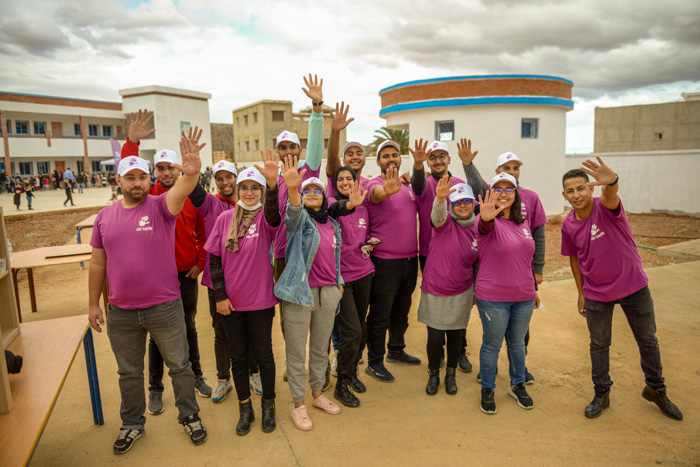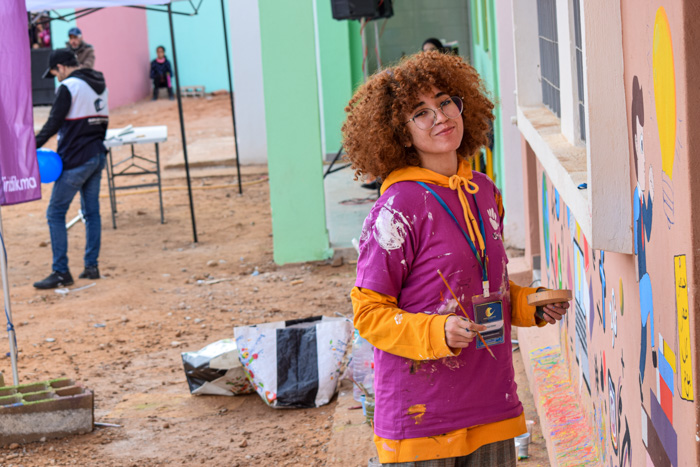
By volunteering and giving time and energy without expecting anything in return, you can discover a lot about yourself. The impact is even greater for students in the middle of their university studies.
Success Stories in Morocco
The system of clubs in business schools (ENCG and ISCAE), engineering schools (ENSA, INPT, EMI, etc.), technical schools (EST, OFPPT) and even faculties enriches the extracurricular life of students, complementing their theoretical training with so-called soft skills.
The network grouping several national business and management schools goes even further by making it mandatory for second-year students to complete the "Social Action" module. This module requires them to work in groups on social projects (developing and renovating neighborhoods, homes, schools or health centers) and develop communication strategies to mobilize volunteers and raise funds. They also keep in direct contact with the authorities, beneficiaries, potential sponsors and school administrators, and they supervise all stages of their actions, from budget estimation to fieldwork.
The students are then graded on the quality of their operations, the immediate and long-term impact on society, as well as various organizational aspects. This represents a unique experience, one that leaves a deep impression on these young people and equips them with the skills demanded of tomorrow’s managers and entrepreneurs.
Better Employability
But why is it so important for students to get involved as volunteers? The question is legitimate, considering the workload that their studies burden them with.
Volunteering is initially motivated, in most cases, by a desire to help others. But young volunteers also gain something positive on a personal level. Regular volunteers develop social, communication and leadership skills. They become more personable, more confident, and most importantly, more able to succeed, both professionally and in their interpersonal relationships.
Crucially, a young person who is committed to causes they are passionate about constitutes a beacon of hope. They thus have a positive impact on their peers and other young people, conveying noble ideas and values through their real-life and social networks.
Finally, every job-seeking graduate is confronted with the paradox of professional experience: To be recruited, you must have experience, yet to have experience, you need to have been recruited. During a job interview, a volunteer can highlight their volunteering experience in place of their professional experience, legitimately emphasizing their advantages.
In short, volunteering is the best way to have a significant and positive impact on those around you while enhancing your own abilities.



